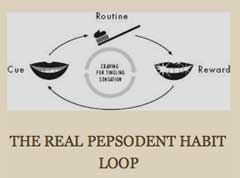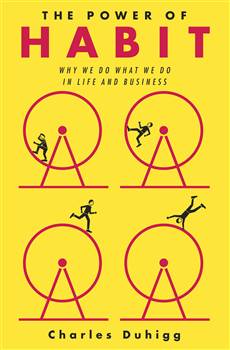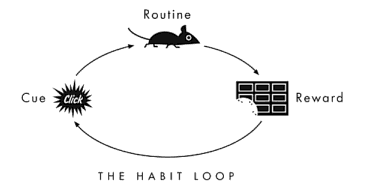Yesterday I cover the habit loop, which enables me to understand myself better in terms of my habits.
Habits, nevertheless, will never be permanent unless there is craving. To explain about the craving, an illustration about Pepsodent really opened my eyes.
I did not really thought what really drives me to brush my teeth every morning and evening. Maybe you thought, "Its just what normal human being do. I do it every day." Actually, it was not what normal human being do in early 1900s. Brushing your teeth was not an obligation. During those times, US was a wealthier nation than before, causing raising consumption on foods with refined sugar. When World War I was drafted, they found out that rotting teeth had become national security risk. They already have toothbrush and toothpaste at that moment, but not a lot of people felt required to do so.
Pepsodent, and Claude Hopkins were those that finally turned USA into a "tooth-brushing" country. How? People said it is his successful ad that does so. He focused on the habit loop: by using tooth film as the cue, brushing teeth with Pepsodent as routine, and removed film as reward. He was not actually the first person to utilize such habit loop. Other toothpaste manufacturers have been using the same formula, but they did not succeed. What is the real cause, then? It was later found that the Pepsodent recipe is the real cause. They used citric acid, mint oil, and some other chemical components that is intended actually to create fresh taste in mouth but they did not realize that it actually creates tingling effect in gums and tongue.
I started to realize that I brush my teeth because my mouth feels refreshed and has that tingling effect after I do it. I have tried several other toothpaste that use no components causing those effects and then, brushing teeth did not feel as exciting as before. It caused me to switch toothpaste again, after that. It is not really the ad that succeed. It is the CRAVING they created, craving for those after-tooth brushing effects.
Craving is what powers the habit. It drives people to do the same thing over and over again to satisfy their craving for specific reward. What drives me to workout? It is the craving of the "feel good" sensation that i always get after a workout. What drives the overweight woman to keep eating? It is the craving of the taste of her choice of food that comforts her after she eat. What drives the mouse? Of course, it is the chocolate. Just wanting the reward will never get us forming a habit, only when we crave for the reward that we can form a habit.
Now the question is, can we change a habit? Yes, we can. Why? Because there are thousands of overweight, alcoholics, nicotine-addicts, and junkies that finally quit what they used to do. What is the secret? Ill cover it in the next post. J



